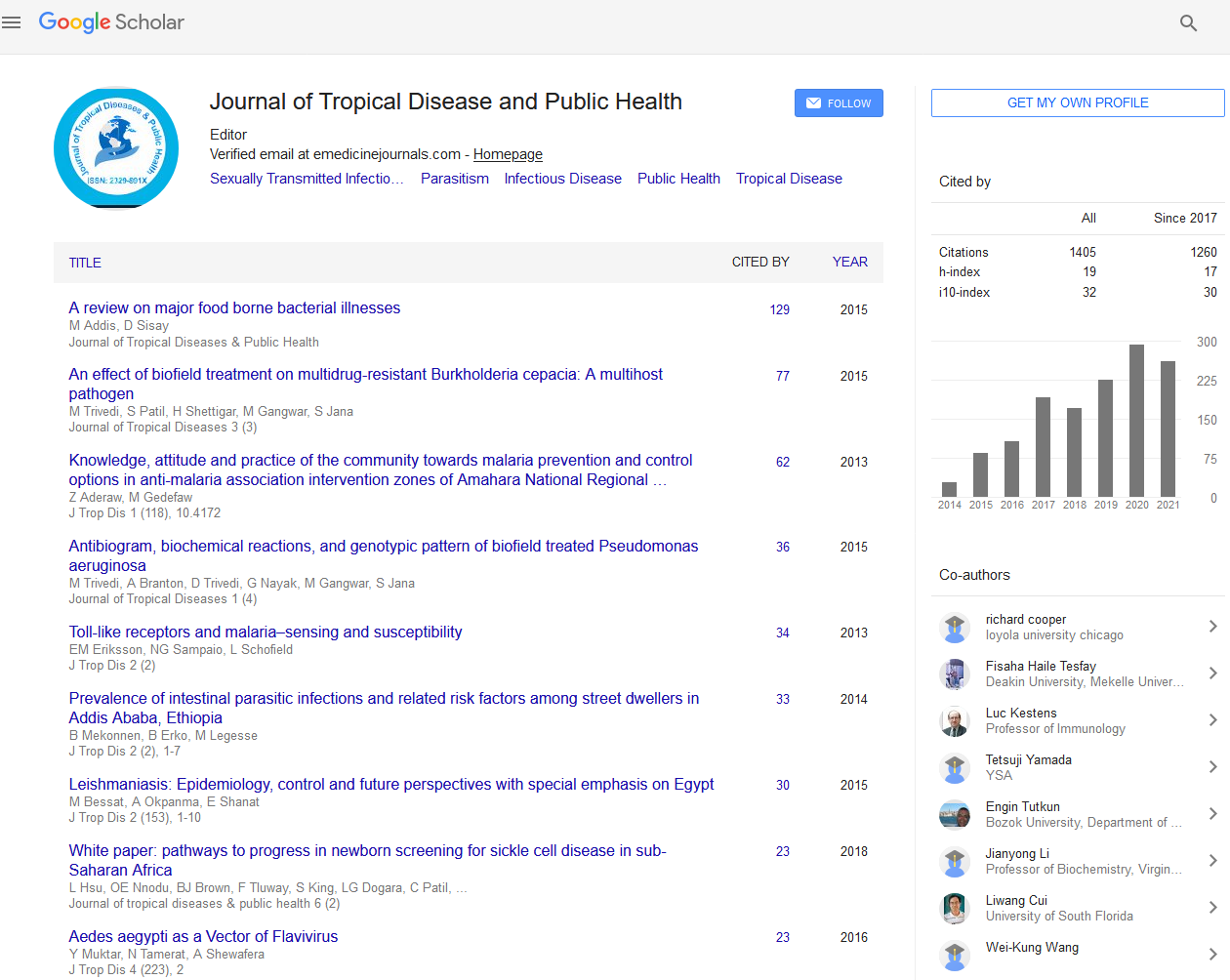Indexed In
- Open J Gate
- Academic Keys
- ResearchBible
- China National Knowledge Infrastructure (CNKI)
- Centre for Agriculture and Biosciences International (CABI)
- RefSeek
- Hamdard University
- EBSCO A-Z
- OCLC- WorldCat
- CABI full text
- Publons
- Geneva Foundation for Medical Education and Research
- Google Scholar
Useful Links
Share This Page
Journal Flyer

Open Access Journals
- Agri and Aquaculture
- Biochemistry
- Bioinformatics & Systems Biology
- Business & Management
- Chemistry
- Clinical Sciences
- Engineering
- Food & Nutrition
- General Science
- Genetics & Molecular Biology
- Immunology & Microbiology
- Medical Sciences
- Neuroscience & Psychology
- Nursing & Health Care
- Pharmaceutical Sciences
Abstract
Prevalence and Factors Associated with Hepatitis B Surface Antigen Positivity among Women Receiving Antenatal Care at Mbarara Regional Referral Hospital
Aheisibwe Hillary*, Mugisha Julius, Ngonzi Joseph, Kayondo Musa, Mayanja Ronald, Kanyesigye Hamson, Wasswa Salongo, Lugobe Henry Mark, Migisha Richard, Bakibinga Pauline, Masembe Sezalio and Kabanda Taseera
Background: Hepatitis B infection is a disease of public health significance. The burden of the disease among the pregnant women at Mbarara Regional Referral Hospital was not known yet determining seropositivity at antenatal care could prevent HBV in the newborn. This study assessed the prevalence and factors associated with hepatitis B surface antigen positivity among women attending antenatal care at Mbarara Regional Referral Hospital.
Methods: This was a cross-sectional study that consisted of 385 pregnant women who attended antenatal care clinic at Mbarara Regional Referral Hospital in a period of three months beginning December 2018 to February 2018. Blood samples were tested for HBsAg using immune-chromatography and positive samples confirmed using the ARCHITECT S2000r system. Data was collected using a structured questionnaire. Logistic regression analysis to assess associated factors with HBsAg was done, results were presented in tables.
Results: Three hundred eighty-five women were enrolled in the study. Their median age was 26 years. Prevalence of current (HBsAg) was 3.12% (95% CI 1.62-5.38%). Prevalence of HBsAg was higher. The factors associated with HBsAg positivity were having more than one sexual partner 10.3% or 4.695% CI (1.34-16.30) pvalue= 0.016, history of valval ulcerations 0. R=3.35(CI 1.04-10.77), p-value=0.045 and history of body piercing 12.88% (CI 1.34-124.40), p=0.0027.
Conclusion: The prevalence of hepatitis B surface antigen positivity among pregnant women receiving antenatal care at Mbarara Regional Referral Hospital is high. According to the WHO classification of hepatitis B infection, results show intermediate endemicity, and this clearly points to the need for universal screening of all women attending antenatal care at Mbarara Hospital.
Published Date: 2019-07-02; Received Date: 2019-05-30


